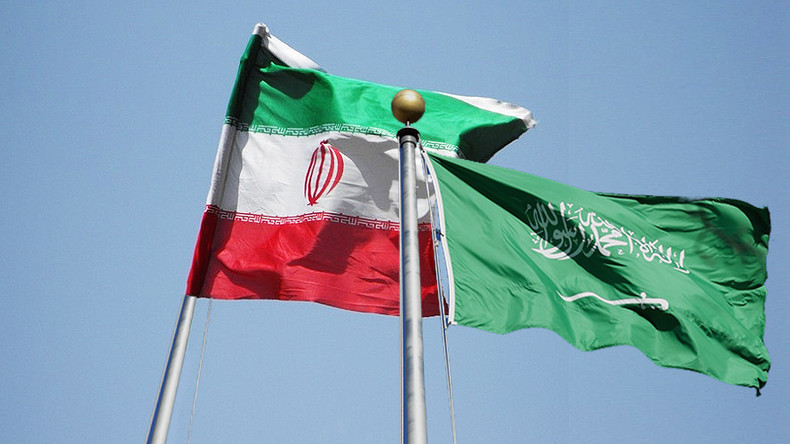Iranian Foreign Ministry Spokesman Saeed Khatibzadeh has said that his country has always welcomed talks with Saudi Arabia.
The statement was made following reports on secret Saudi-Iranian talks allegedly held in the Iraqi capital on April 9. Answering a question from the media about whether Iran confirms the fact of such talks between Tehran and Riyadh, Khatibzadeh said that “we have also seen these media reports that you mentioned.”
“Of course, miscellaneous and at times contradictory reports have been published in this regard,” the spokesperson added, according to a report by the Iranian Students News Agency.
Khatibzadeh, however, abstained from clearly confirming that the talks took place, stressing that “Iran has always welcomed talks with the Saudi Kingdom and considers them beneficial for the people of the two countries, as well as for peace and stability in the region.”
Meanwhile, the Iranian Young Journalists’ Club news agency has cited an “informed source” as confirming reports on negotiations between Iran and Saudi Arabia on the issue of Yemen, where a military coalition led by Saudi Arabia has been battling the Iran-aligned Houthi group, also known as Ansarallah, since March 2015.
The report reads that Saudi Arabia is “after Iran’s mediation in the conflict with Houthis and Ansarallah, because Saudi Arabia is under pressure due to this conflict,” and further stresses that “Iran noticed that Yemen has its own owners and Saudi Arabia must talk with Yemenis and Ansarallah themselves.”
“During these talks, Iran gave some recommendations to Saudi Arabia on what to do for negotiations with Yemen,” according to a report by Young Journalists’ Club.
On April 18, Reuters quoted an unnamed senior Iranian official and two regional sources, as saying that Saudi and Iranian officials held direct talks this month in a bid to ease tensions. Earlier, the Financial Times reported that a Saudi delegation led by intelligence chief Khalid al-Humaidan met Iranian officials in Iraq on April 9 for the first significant talks between the two nations since 2016.
Meanwhile, Saudi media have denied reports that the country’s officials are in talks with Iran.
The alleged meeting came shortly after Iraq’s Prime Minister Mustafa al-Kadhimi traveled to Saudi Arabia to hold talks with its top leadership, including Crown Prince Mohammed bin Salman. Iraq holds close ties with neighboring Iran, and several high-level political delegations have traveled to Tehran to discuss the region in recent months.
Since March, Iran and world powers have been negotiating in Vienna to restore the Joint Comprehensive Plan of Action (JCPOA), known as the Iranian nuclear deal. Iran has accused the Saudi Arabia-led Gulf Cooperation Council of trying to derail the talks that, if successful, will see US sanctions on the country lifted.
In 2015, Saudi Arabia led a military coalition that intervened in Yemen against Houthi forces that pushed the internationally recognized Yemeni government from power in late 2014. The conflict in Yemen is mostly seen as a proxy war between Saudi Arabia and Iran, two countries widely seen as archrivals in the Middle East. The Iranian government has repeatedly stated that it would continue to support the Houthis against the Saudi Arabian-led coalition, backed by the United States and supporting the Sunni mainstream.
In early 2016, Riyadh cut off diplomatic ties with the Islamic Republic of Iran after a group of Iranian hardliners stormed the Saudi Embassy building in Tehran, protesting against Saudi Arabia's execution of Shia cleric Sheikh Nimr al-Nimr.
The tensions between Saudi Arabia and Iran have been escalated after the attack on Saudi oil facilities in September 2019. Iran-backed Houthi rebels from Yemen claimed the responsibility for the attack. Saudis have subsequently blamed Tehran for putting its weight behind the attacks, but officials in Tehran turned down Riyadh's allegations.







 Azerbaijan and Armenia started the process of demarcation of their border on Tuesday, with the installation of the first border markers based on ge...
Azerbaijan and Armenia started the process of demarcation of their border on Tuesday, with the installation of the first border markers based on ge...
 President Aliyev emphasized the critical role of the North-South Transport Corridor in fostering transport cooperation between Azerbaijan and Russi...
President Aliyev emphasized the critical role of the North-South Transport Corridor in fostering transport cooperation between Azerbaijan and Russi...
 Russian Foreign Minister Sergei Lavrov has reasserted that Moscow has no intentions to stop the fighting in Ukraine, even if peace talks commence.
Russian Foreign Minister Sergei Lavrov has reasserted that Moscow has no intentions to stop the fighting in Ukraine, even if peace talks commence.
 Iran has refuted reports of alleged damage to Shimon Peres Negev Nuclear Research Centre located southeast of Dimona, Israel, during the recent air...
Iran has refuted reports of alleged damage to Shimon Peres Negev Nuclear Research Centre located southeast of Dimona, Israel, during the recent air...
 Iran and Pakistan have signed eight cooperation documents in various fields, and agreed to strengthen ties to fight terrorism in the region.
Iran and Pakistan have signed eight cooperation documents in various fields, and agreed to strengthen ties to fight terrorism in the region.



